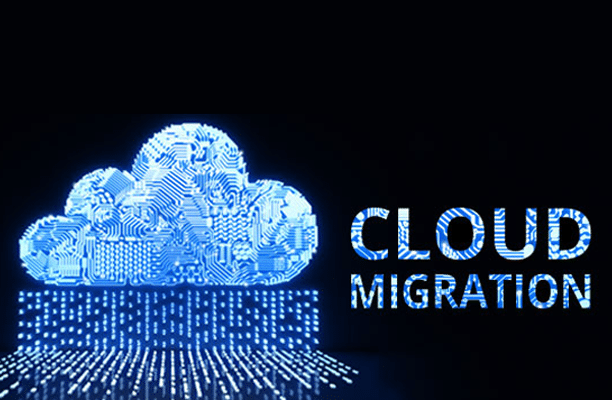Businesses considering cloud migration will be doing so to gain advantages beyond being limited to on-premises servers. Increased speed, bigger scalability and savings on consumables are three major benefits to undertaking a cloud migration. For staff, locally distributed teams, flexible working hours, centralised data collection and personnel evaluation are advantages too.
What is cloud migration?
Cloud migration is the process of moving data, applications or other business elements to the cloud or from one cloud environment to another. One major benefit is speed. Businesses using cloud service providers no longer suffer server slowdowns because these providers invest in the infrastructure needed on a scale which an individual business cannot.
For this reason, scalability as the business grows in headcount and customers is easily achievable with minimal cost additions, and consumable costs such as paper, electricity, hard infrastructure and even office filing solutions are reduced significantly.
Cloud service migration IT issues
The process of transitioning from ‘anywhere to anywhere’ means engaging a cloud provider.
Having data managed and stored remotely presents a new set of issues. When determining which cloud migration package to use, consider external organisations in multiple locations will be storing the business’ data. They must be accountable for the following:
Privacy – compliance with the General Data Protection Regulation (GDPR) and data stored in a secure cloud environment. This is a pro too, as material data loss (for example, the office suffers a fire) is no longer something to worry about. Data Sovereignty is something that needs to be considered with deploying private data to the cloud, care needs to be taken that data regulations are not compromised when private data is moved into the cloud.
Interoperability – applications must use common interface or common object request broker architecture. In simpler terms, if everyone uses Excel for example, making sure all statements, functions, and options work in the new and different cloud environment.
Data and application portability – migrating with security and ease. Common challenges here include the price – it can vary hugely, you can pay too much; the portability of your existing software to the new system, and lack of vendor information if unauthorized software as a service (SaaS) or platform as a service (PaaS) products are used exposing the business to malware risk or data exfiltration.
Data integrity – one of the consequences of storing data in a centralised manner in the cloud means considering data theft, accidental or deliberate erasure, or espionage. With cloud storage in the hands of a few large providers such as Amazon (AWS) and Microsoft (Azure) the exact data centre the business information is stored on is unknown – just guaranteed by these third-party companies. Hopefully, they’ll maintain integrity as their business reputations depend on it. The other risk is employees who have varied levels of access to data internally. It would be wise for any business to undergo a cyber security audit at the same time as cloud migration to protect against internal and external threats.
Access Control – protecting access to data in the cloud to ensure that the right people have access needs to be considered carefully. End users (staff or customer) need to have appropriate controls for authentication. Users with administrative or development privileges need special care with tools to protect operating systems, databases and the application. The use of Apps on mobile devices or personal computers from within your company accessing cloud services can introduce vulnerabilities that can be addressed with available technologies.
Business continuity – it’s worth considering not every internal system needs to be in the cloud. Storing data locally and in data centres is a way to separate the most secure information a business holds. When orders and sales grow, any upscaling needs to be both vertical and horizontal across support and administration applications.
One of the problems when deciding on a cloud migration is how long the list of things your business needs. Document management, customer care, projects, time trackers, warehousing, shared calendars, email systems and much more are all available in the form of cloud services and often cost monthly per user. If you come up against storage limits this costs more too.
To help your organisation get the best value when managing a cloud migration, we would be happy to help with expert advice and solutions tailored to your business needs and vision. Contact us on 01252 843014 or info@burningtree.co.uk.




